Women on the frontiers of hunger
A group of peruvian women is voluntarily in charge of addressing one of the biggest problems of the crisis due to covid-19: hunger in the most vulnerable sectors of the capital of Lima, in Peru. The women organized in “ollas comunes” -community-led soup kitchens- in informality without a specific record on their ranges or their storage capacity. These women have a greater responsibility. They should take care not only of their families but of others. According to the Economic Commission for Latin America and the Caribbean, latin women dedicate three times as much time on unpaid care work than men prior to the pandemic, an effort that almost always impacts people who are in poverty.
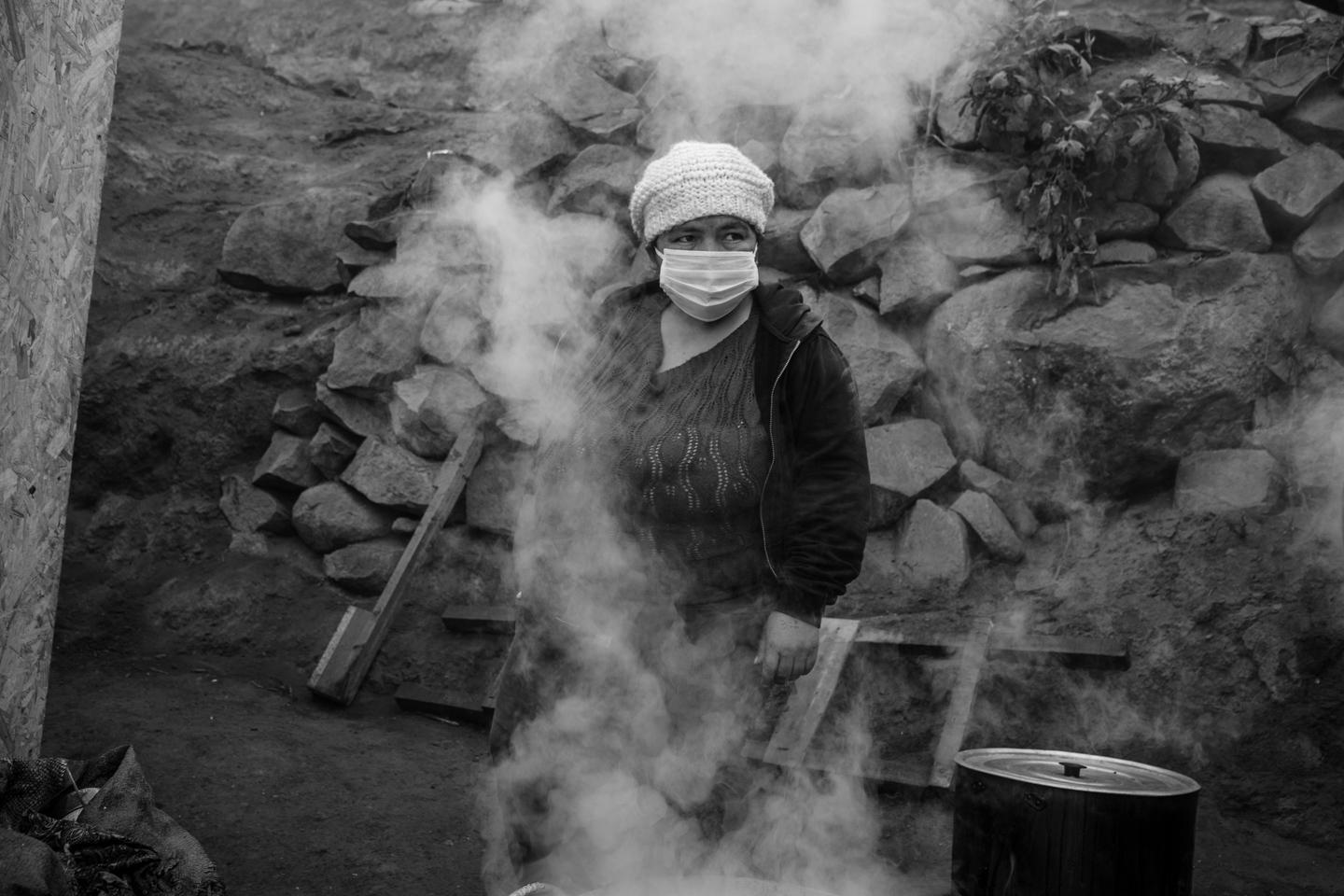
Yaneli Santos at the “olla común” Manos Solidarias in Lima, Peru. These community soup kitchens are a crisis response and they’re organized mostly by women. Lima Perú
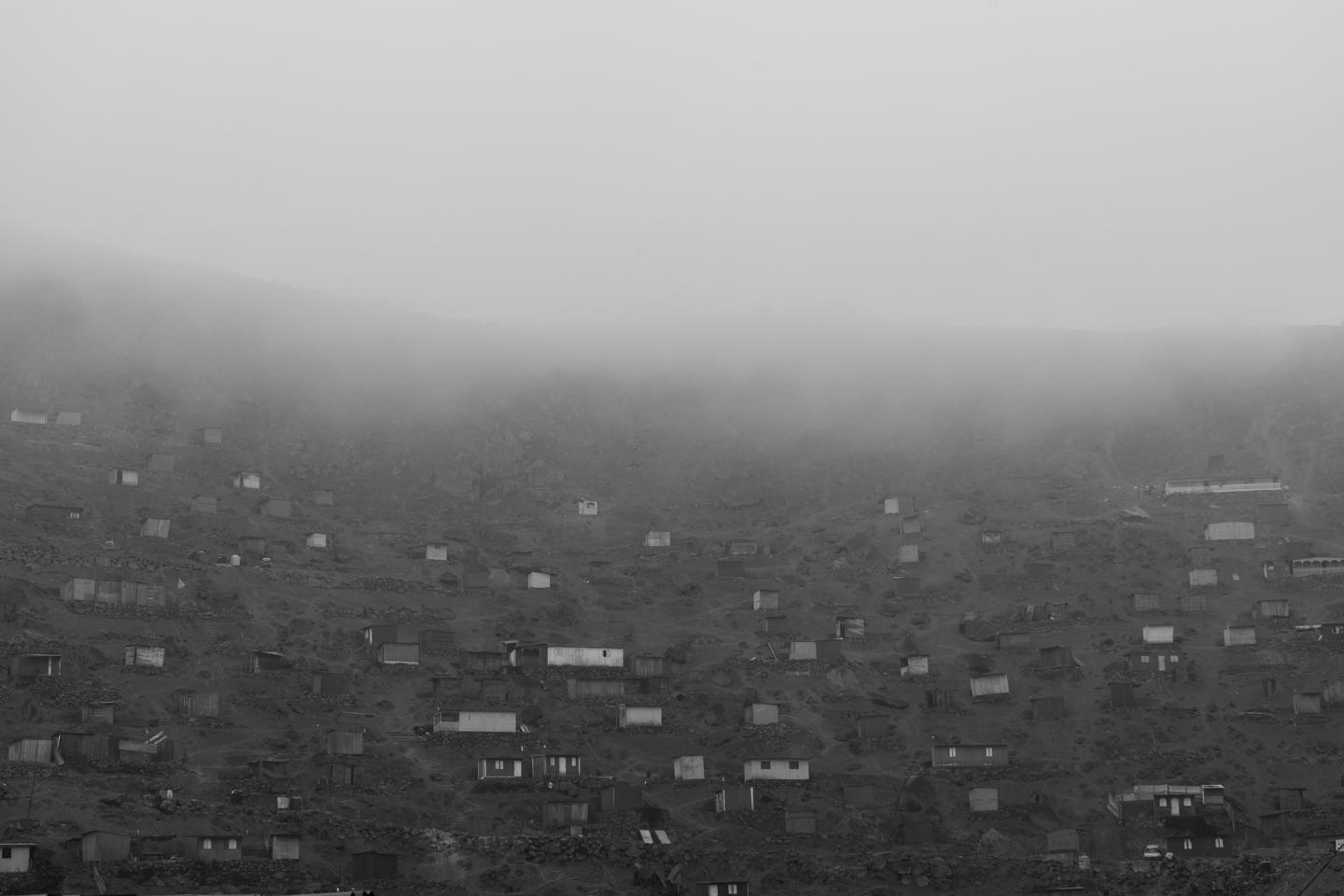
The hillsides of Lima became the settlement of precarious housing, where many people lost their jobs due to COVID-19. Lima Perú
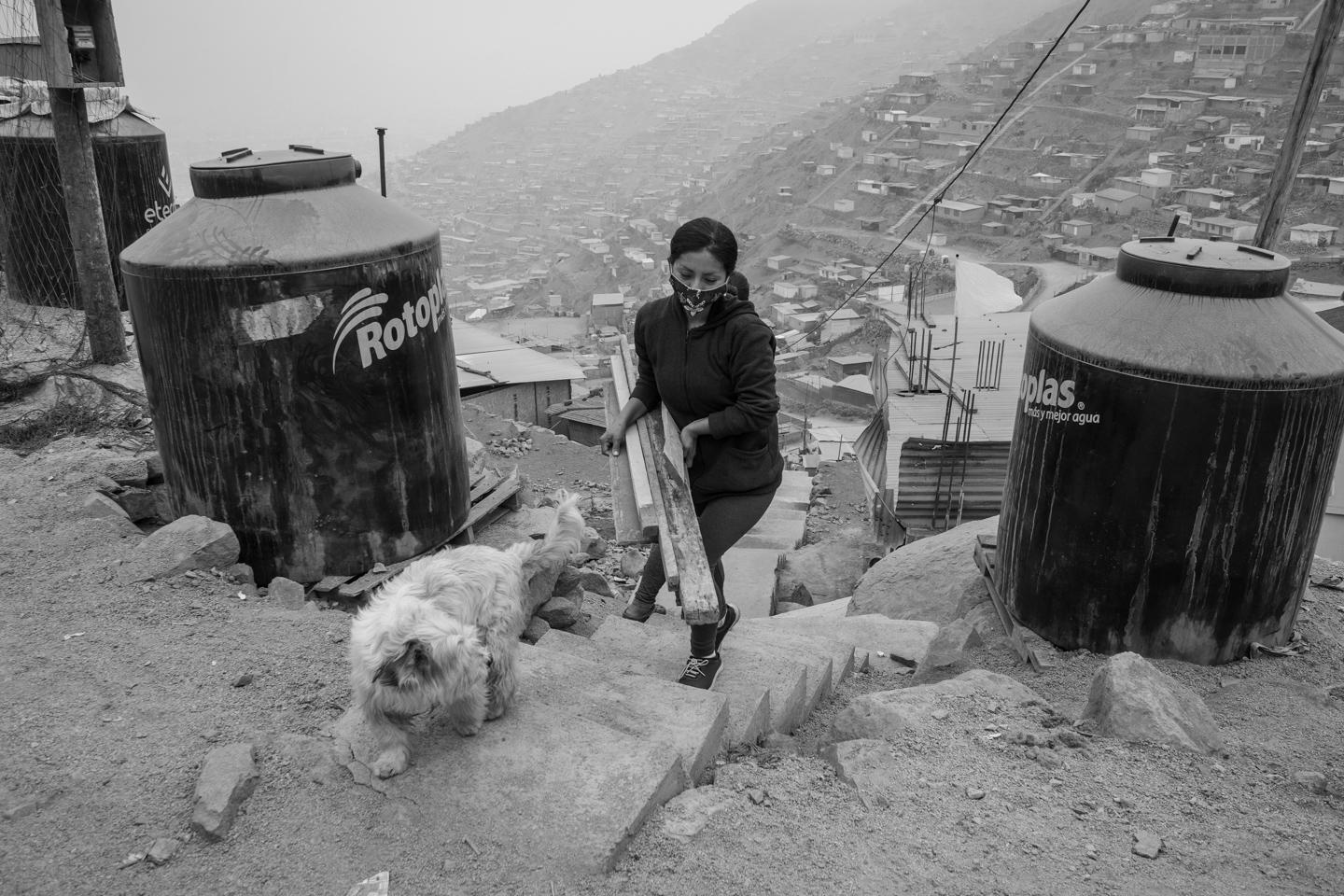
Daysi Esteban collects wooden boards to make a fire in the Casuarinas de Jicamarca human settlement, in San Juan de Lurigancho. Cooking with wood is the cheapest option, but it harms the health of women because of the polluting smoke. Lima Peru
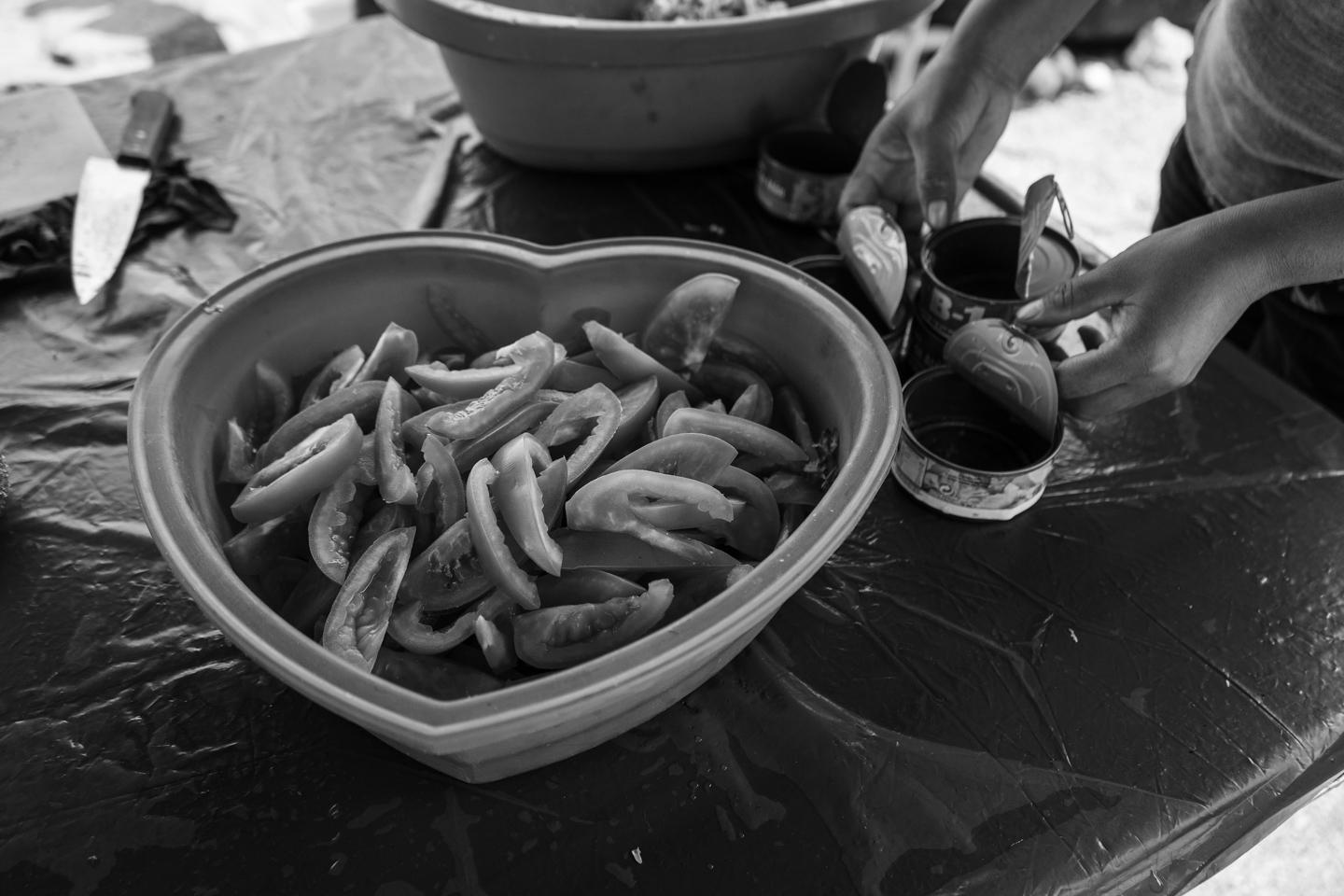
Nourishment. Only 25% of the donations for the meals have been proteins, fruits and vegetables. The "ollas comunes" have fed between 100 and 200 people a day since the beginning of the crisis in Peru. Lima Perú
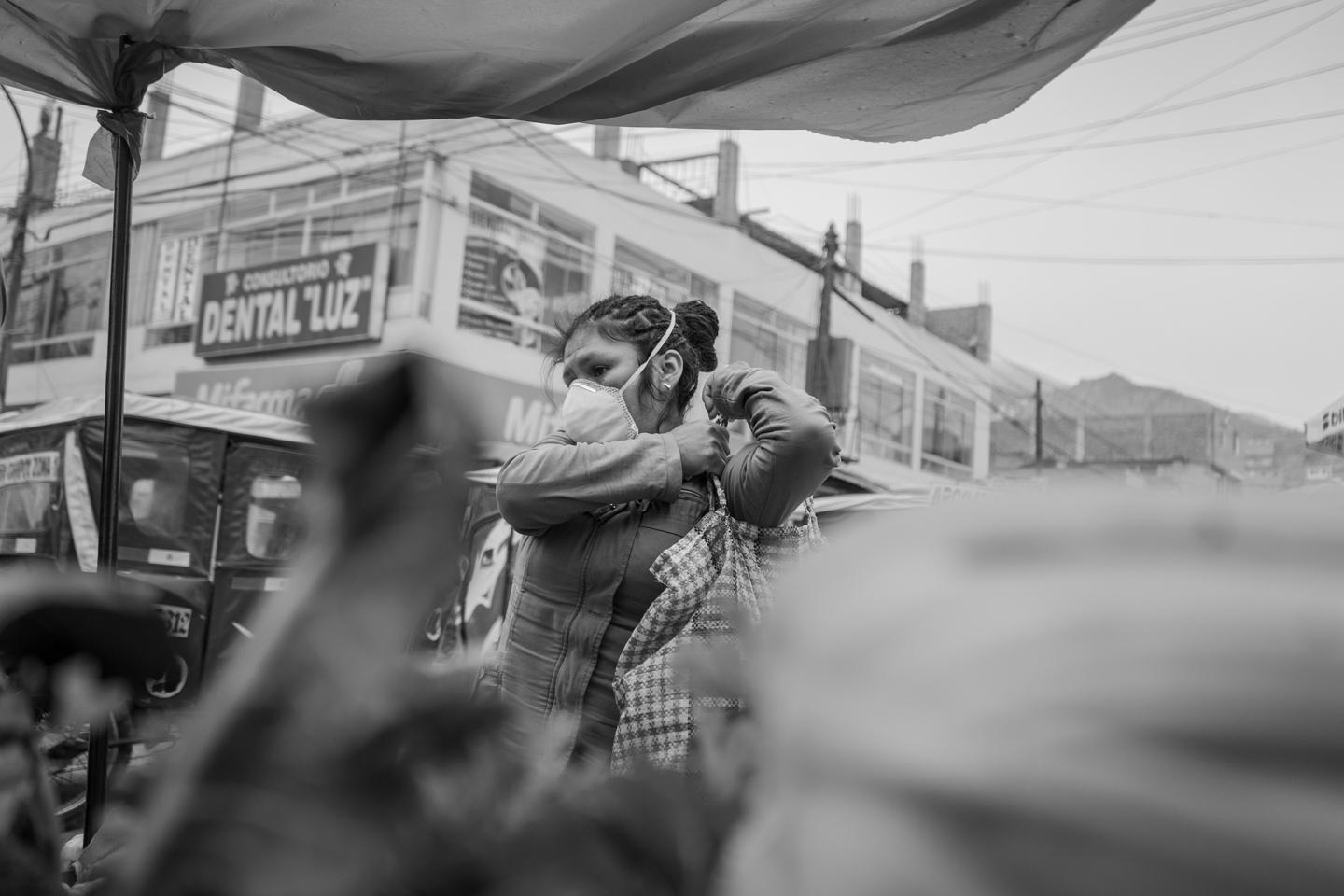
The effort. The money they collect from neighbors for cooking is not enough to feed everyone. Every day, Silvia Ramos goes to the markets of San Juan de Lurigancho to ask for food donations for the "olla común" Lima Perú
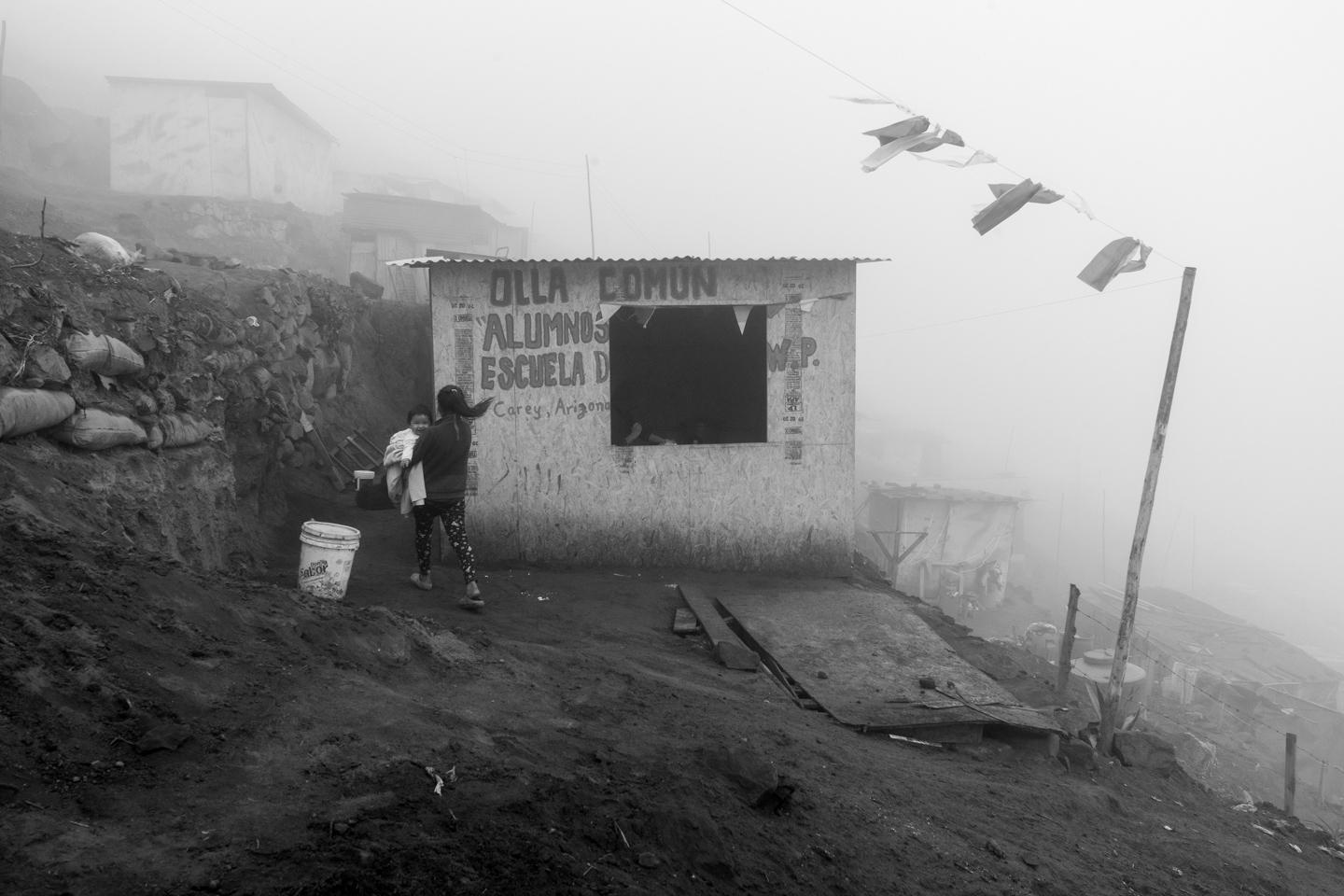
More than a kitchen. The women participating in the "ollas comunes" must wake up very early to get their family ready for the day. Then their older children must look after the younger ones while the women organize lunch. Lima Perú
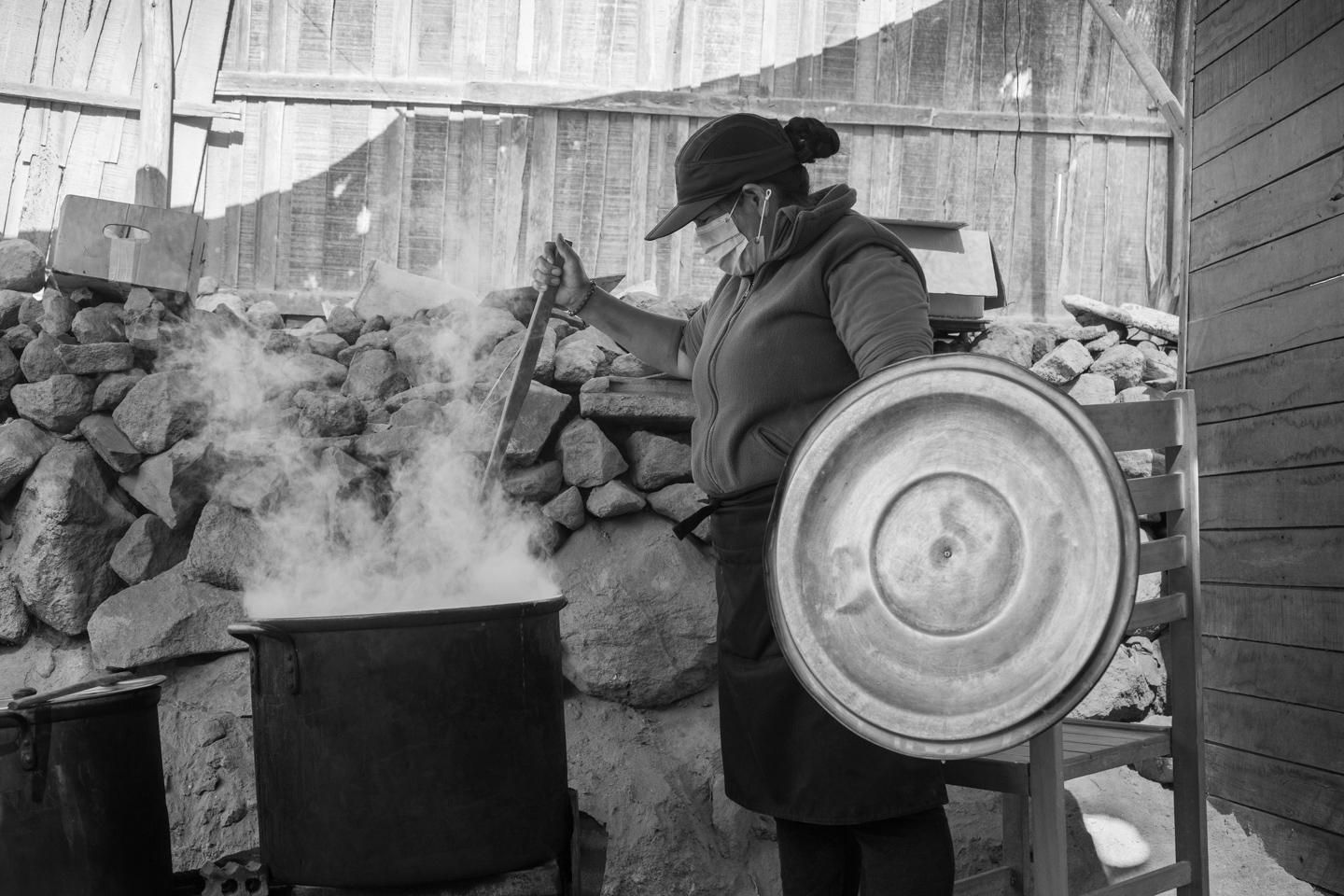
Lucía Farfán at the “olla común” in Manchay. She lost her job as a domestic worker during the pandemic, and now she spends her days cooking and taking care of her family. Lima Perú
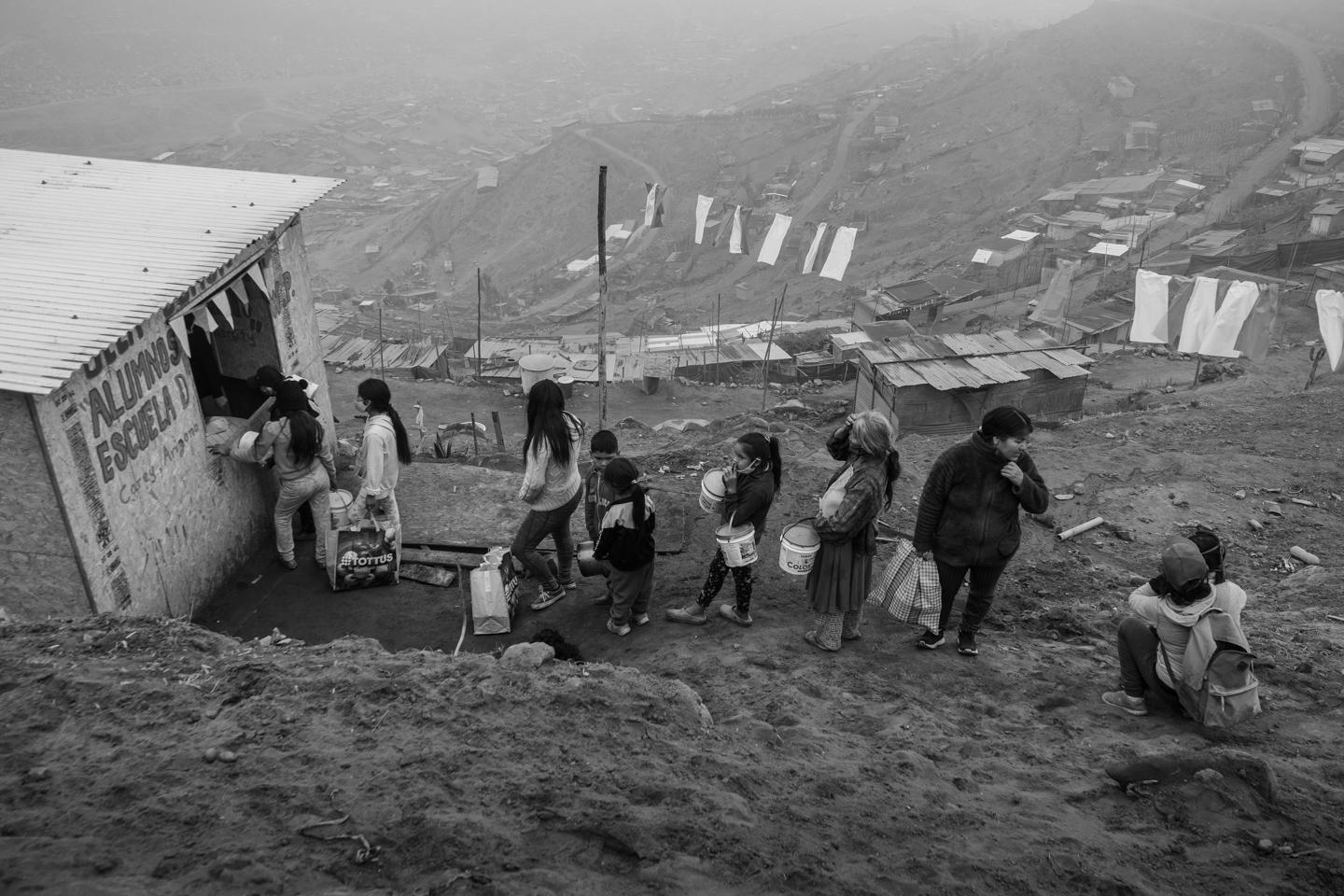
The wait. Children and women collect food distributed by the "olla común" from monday to saturday. Lima Perú

Yaneli Santos at the “olla común” Manos Solidarias in Lima, Peru. These community soup kitchens are a crisis response and they’re organized mostly by women. Lima Perú

The hillsides of Lima became the settlement of precarious housing, where many people lost their jobs due to COVID-19. Lima Perú

Daysi Esteban collects wooden boards to make a fire in the Casuarinas de Jicamarca human settlement, in San Juan de Lurigancho. Cooking with wood is the cheapest option, but it harms the health of women because of the polluting smoke. Lima Peru

Nourishment. Only 25% of the donations for the meals have been proteins, fruits and vegetables. The "ollas comunes" have fed between 100 and 200 people a day since the beginning of the crisis in Peru. Lima Perú

The effort. The money they collect from neighbors for cooking is not enough to feed everyone. Every day, Silvia Ramos goes to the markets of San Juan de Lurigancho to ask for food donations for the "olla común" Lima Perú

More than a kitchen. The women participating in the "ollas comunes" must wake up very early to get their family ready for the day. Then their older children must look after the younger ones while the women organize lunch. Lima Perú

Lucía Farfán at the “olla común” in Manchay. She lost her job as a domestic worker during the pandemic, and now she spends her days cooking and taking care of her family. Lima Perú

The wait. Children and women collect food distributed by the "olla común" from monday to saturday. Lima Perú